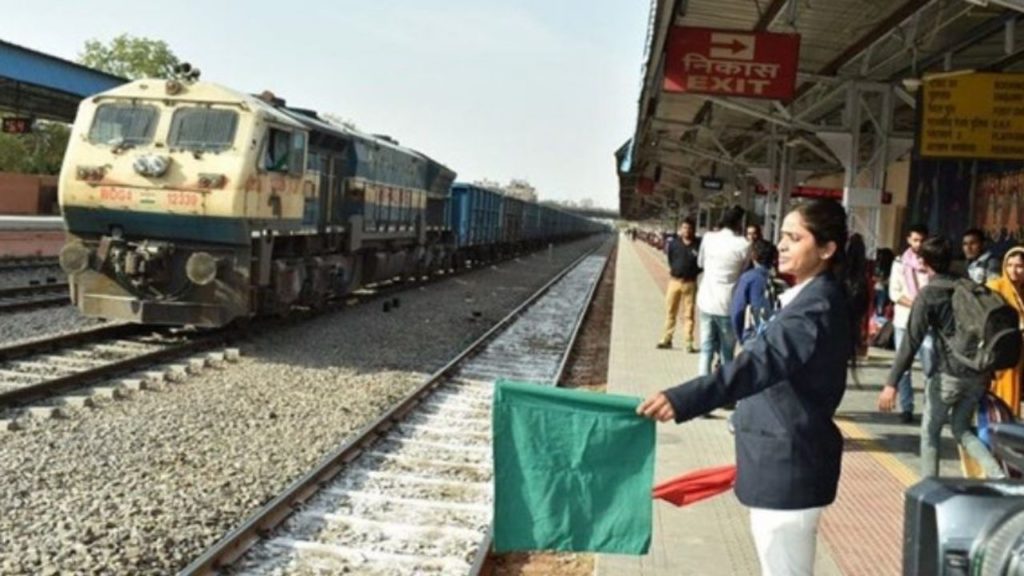Indian Railways Is Firing Thousands Of Retired Staff Which Were Re-Hired: But Why?

Indian Railways Is Firing Thousands Of Retired Staff Which Were Re-Hired: But Why?
The Indian Railways’ ailing finances have taken a further hit in the COVID-19 resultant lockdown wherein the Indian passenger trains came to a complete halt — an unprecedented occurrence — until the Shramik Express operations were launched in May. With the pandemic threat still strong, full-fledged operations are yet to resume.
Thousands of retired employees who were re-engaged in 2019 are set to lose their jobs as the Indian Railways’ thinks of cost cutting to weather the economic crisis due to COVID-19 pandemic.
Read to find out more…
Contents [hide]
Indian Railways’ Incessant Financial Crisis!
The nationwide lockdown imposed to curb the spread of COVID-19 pandemic has aggravated the financial crisis of the Indian Railways, The transporter’s wage and pension bill has reportedly risen to two-thirds of all costs.
In January 2020, Railway Board chairman V.K. Yadav had asked the Union Finance Ministry to create a pension fund for railway employees, saying about 25%of its earnings go into paying pensions to the tune of Rs 50,000 crore. Yadav also highlighted that a large chunk of railways earnings is spent on paying salaries to its 12.5 lakh employees.
In 2019-20, the operating ratio of the railways was 98.44%, which means that the railways was spending 98.44 paise to earn 100 paise (Rs 1) during this time. With the revenue from passenger trains next to negligible in the last 3 months, and that from freight trains suffering too, the operating ratio is bound to go up even further.
Zonal Railways Laying Off Staff With An Immediate Effect!
According to the sources, the zonal railways are seeking to terminate the services of the re-engaged staff with immediate effect in a bid to cut expenses at a time when the revenue generated is at an all-time low due to the pandemic.
Some zones, like the Southern Railways and the Southern Eastern Railways, already terminated the services of the staff in May.
On May 5 the Southern Railways had said in a letter, “In view of partial attendance due to lockdown, and also greater risk involved in the case of those above 60 years due to Covid-19, it is decided that the services of all the re-engaged retired staff of all workshops of Southern Railways as per the details of given below are to be terminated duly given 15-days-notice.”
Why the LayOffs and Which Jobs Will Be Impacted?
The development is driven by factors like the increased vulnerability of retirees to Covid-19 on account of their age, highly placed sources in the railways. The transporter although said cutting these jobs will save them crores in salary bills.
The jobs to be impacted include the junior-most staffers, involved in operations such as track machines, bridge and similar technical safety categories. The pension they are entitled to is 50% of the salary they get.
Re-Engaged Employees at Risk!
In 2019, the Railway Board had approved a scheme that aimed at utilizing its retiree pool to fill up thousands of vacancies, contractually and on an ‘experimental basis’ for a period of 2 years. The scheme was to allow re-engagement ‘against clear vacancies against direct recruitment quota’ in the Pay Grade level 1 to 7, which means at the junior-most levels.
The order had said, “As soon as the vacancies are filled up by fresh recruitment or any other mode, including compassionate ground appointments, the contractual engagement made through this channel should be reduced accordingly.”
Subsequently, thousands of retirees were re-hired ‘in track machines, bridges and other similar technical safety categories’.
A senior officer said, “There are thousands of re-engaged employees working in the Indian Railways… They have been re-engaged due to shortage of staff.” He added, “In Northern Railways alone, there are about 1,000 re-engaged staff.”
Talking about the decision to remove them, the officer said `there was surplus manpower during the lockdown and the railways was not able to utilise its manpower effectively’.
The officer added, “Moreover, since those who are re-engaged are in the 60+ age group, and very vulnerable to Covid-19, it is felt that terminating their services would be a prudent exercise.” HE also said that additionally, doing so would save the exchequer hundreds of crores per month.
Discussing the origins of the re-engagement policy, a second senior railway officer said recruitment by the Government of India is low, which is why the railways — an extremely manpower-dependent entity — resorts to retired staff. The officer said, “The tasks in the railways are very specialised… So in the face of low recruitment, there is dependence on retired staff… But yes, that is an additional financial burden, of course.”
The good news for the employees is that after the termination of their services, the re-engaged staff will be paid their pensions.

Comments are closed, but trackbacks and pingbacks are open.